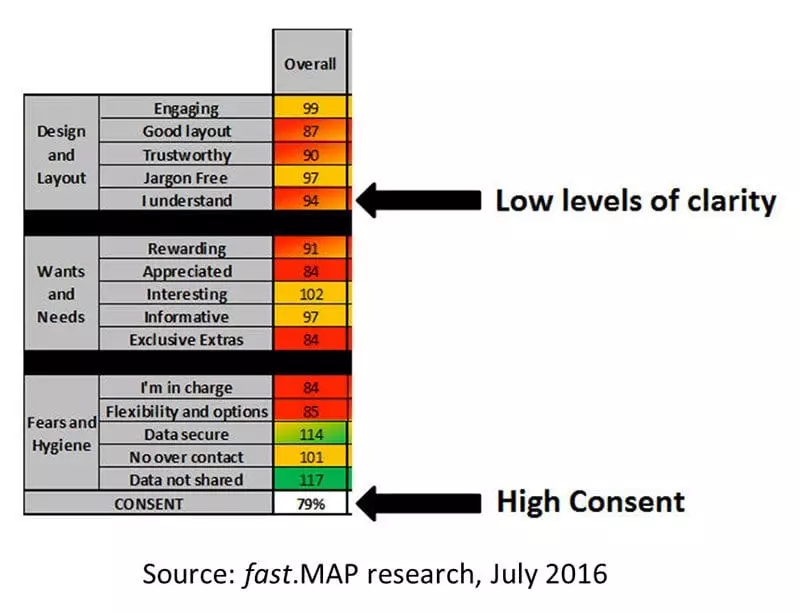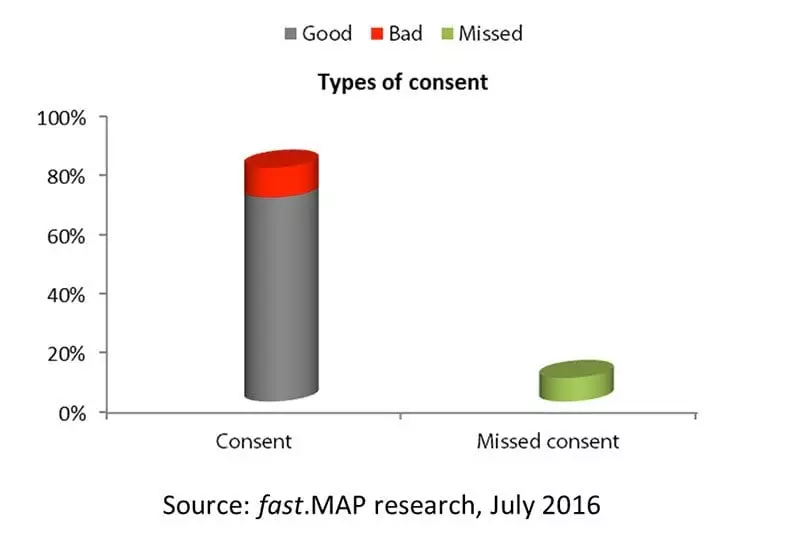Confusing donors to gain consent is not worth the risk
Confusing people into giving consent (for example, by mixing opt-in and opt-out options) can end up costing money, undermining the charity’s brand values and causing ill-will among potential donors.
Every fundraiser wants to appeal to as many supporters and potential donors as possible, and this tempts them into doing anything which is likely to maximise the number of people who consent to a fundraising contact.
But is there any point in bamboozling people into accidentally agreeing to receive charity communications when they are not really interested in either supporting or donating? If people really aren’t interested in hearing from a charity, their presence on their databases will raise fundraising costs; depress response rates and annoy the recipients of unwanted junk contact.
Even at a time when consent is increasingly difficult to obtain, there are very good commercial and ethical reasons why fundraisers should hold back from using every ploy they can devise to maximise marketing permission.
Constant review of fast.MAP Consent Optimising Benchmarks results tutored the fast.MAP team in the dark art of maximising consent (while always staying on the correct side of data protection law) by creatively using astute language, appealing design and an increased choice of communication channels.
An uncomfortable truth
While perfecting these dark arts, the team discovered an uncomfortable truth: confusion can increase consent. The attribute scores, below, are for a completely legal statement, which was deliberately created to confuse people by mixing opt-in tick boxes for some media and opt-out boxes for others.
It achieved a high (79%) level of consent. However, because the Consent Optimising Benchmarks examine the reasons for (as well as the levels of) consent, this statement was discovered to be confusing. Further investigation revealed part of the reason that it was performing well was precisely because it was confusing!
Confusion costs money?
Setting aside the ethical concerns (which are not part of the Consent Optimising Benchmarks Research) there are excellent financial and branding reasons for rejecting this policy.
For example, of the 79% of people who gave consent to the above statement, an unidentifiable 10% did not intend to give permission and so, when contacted, are unlikely to be as profitable as those who meant to consent.
This means time and money will be wasted contacting them and they will depress the overall response rates.
More commercially worrying: the mix of confused and legitimate consenters could cost money by rendering the list unprofitable.
And, even more alarming, the 8% who actually wanted to consent – but who unintentionally ticked the wrong boxes – have now been removed from the communication programme, with the subsequent loss of their good-will and potential donations.
Consumers know about and understand marketing consent and they do not like to be bamboozled.
This means that the charity’s reputation could have been potentially damaged, because of the negative impression that many prospects will have formed when reading the confusing statements.
After all, it would be reasonable for people to assume that a charity which tries to fool them into giving consent may also be misleading them about its activities.
So why persist in generating confusion to boost database size when such manipulation costs money, erodes trust, brand credibility and makes people more wary about supporting the cause?
Even worse, what if some people air their views about a deliberately confusing permission statement on social media and the story goes viral?
The answer is to adopt the possibly more complex but, ultimately, more commercially rewarding aim to optimise, rather than maximise, consent.
You can gain insight into maximising consent in fast.MAP’s ‘Guide to Creating Charity Permission Statements’ – normally £50 but free for UK Fundraising readers who use the following download code: COGCH0316.
Main image: people’s consent – Jakub Grygier on shutterstock.com
Advertisement





